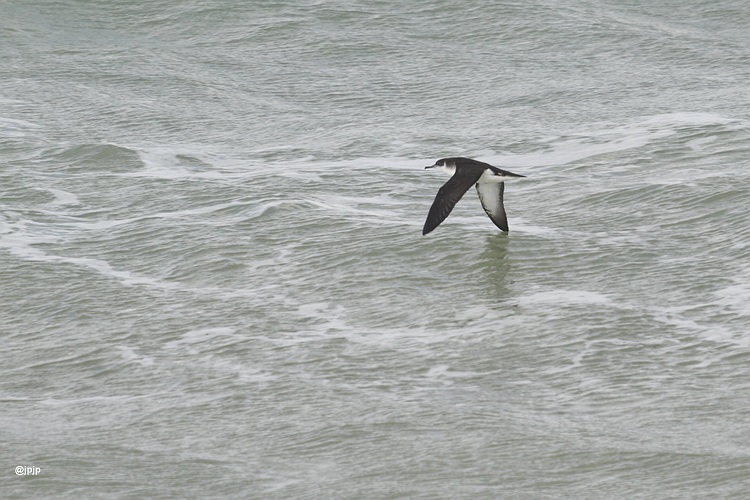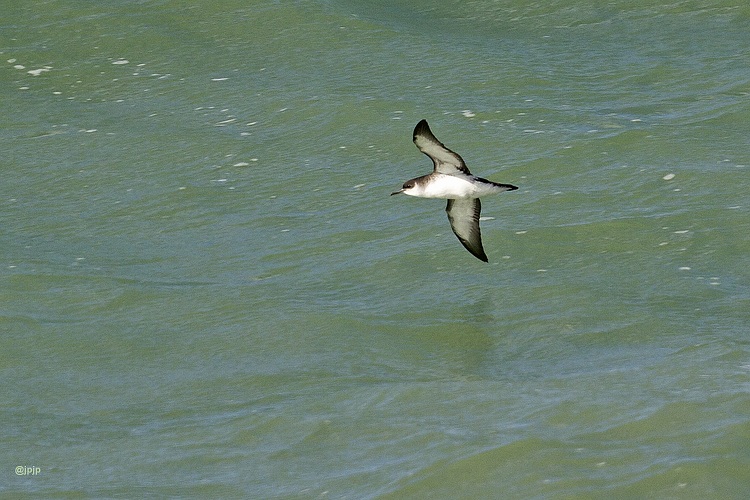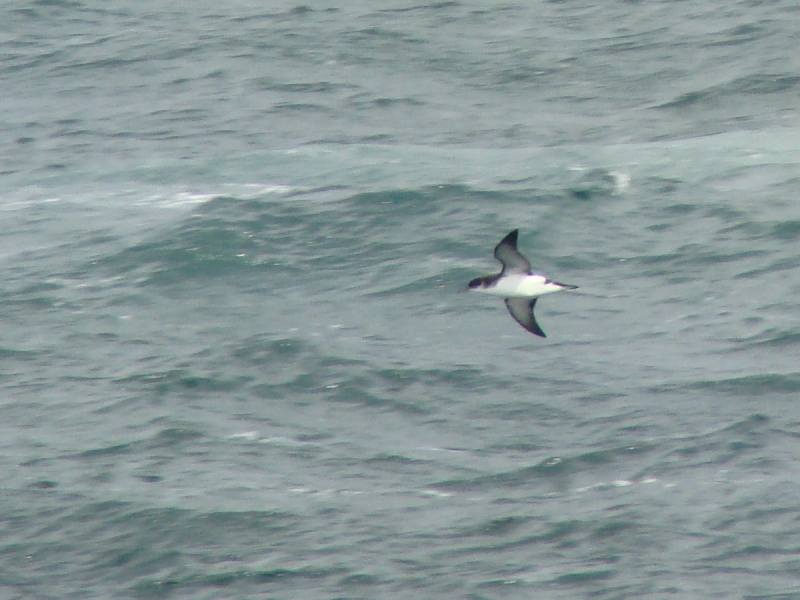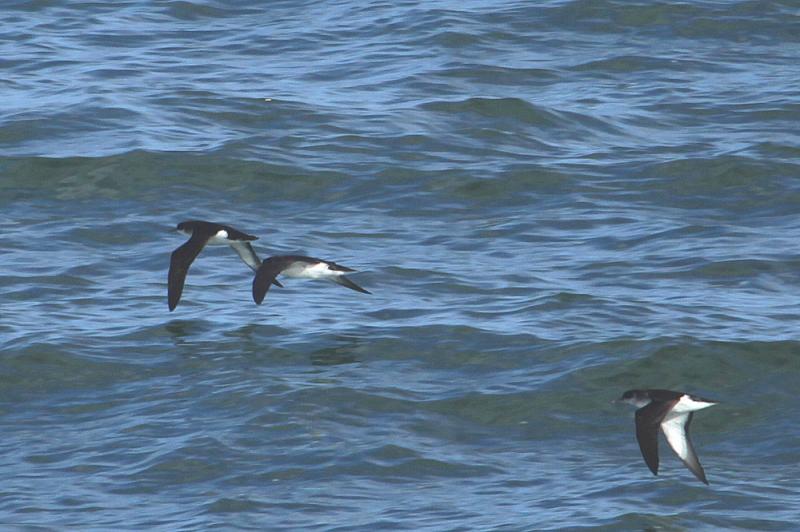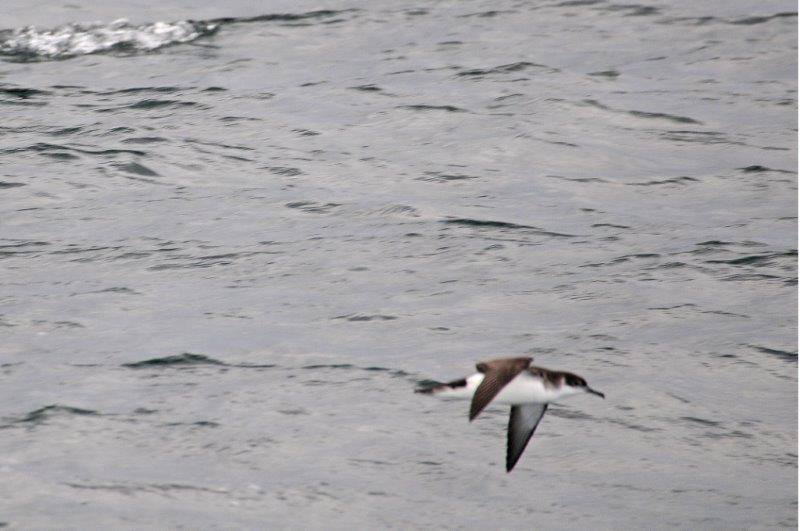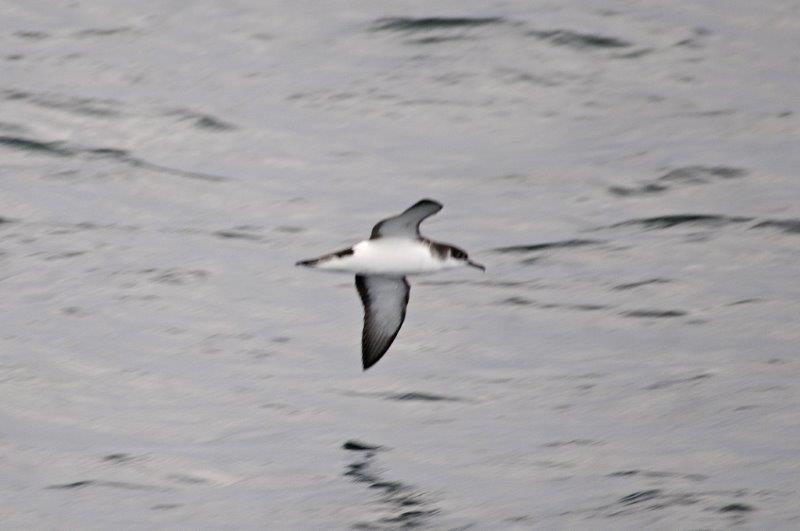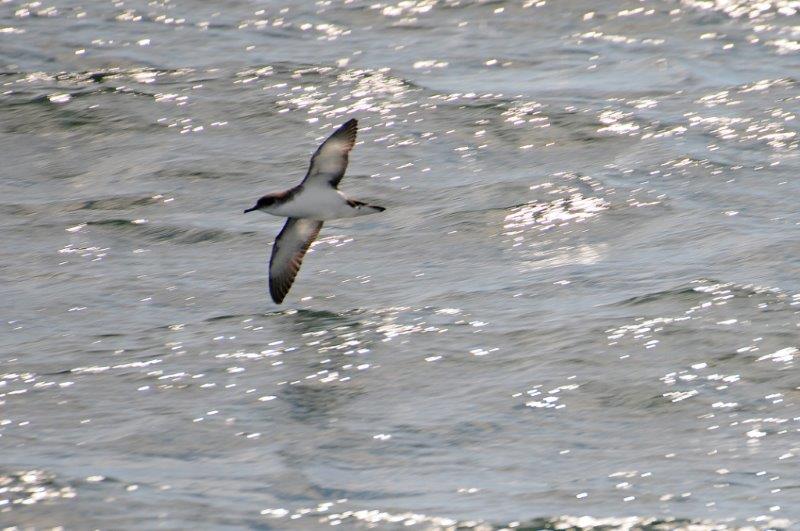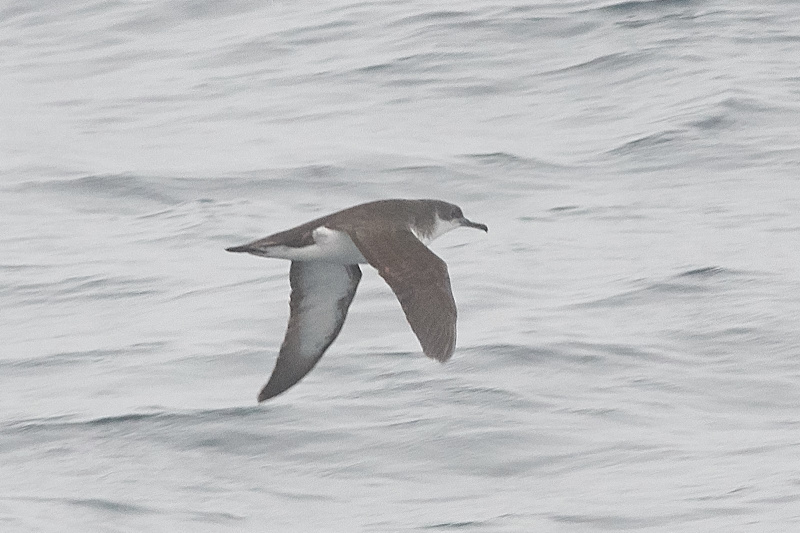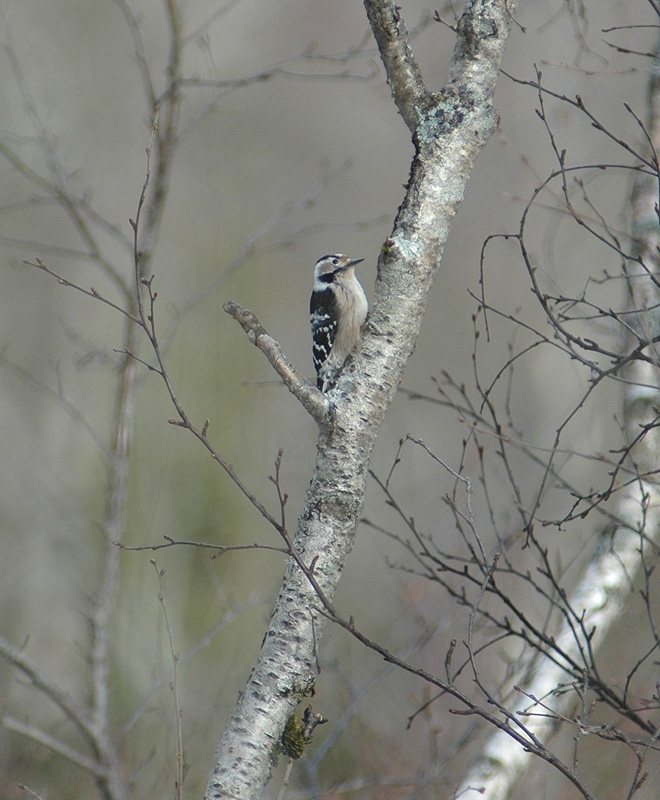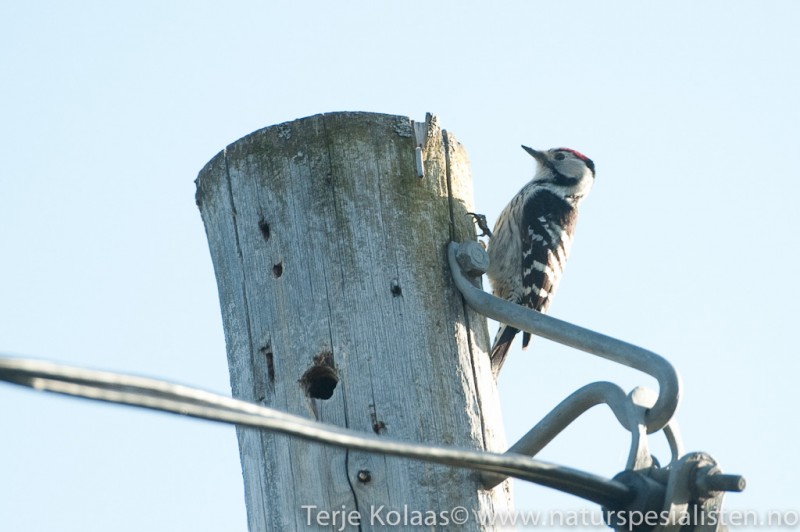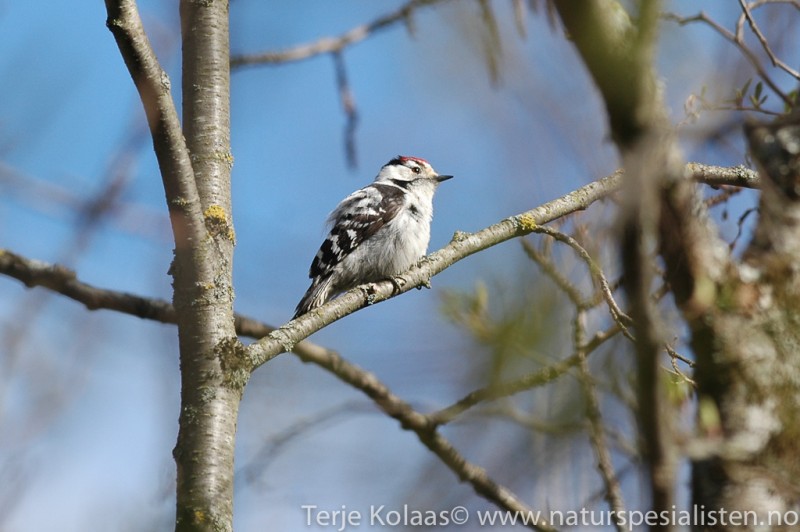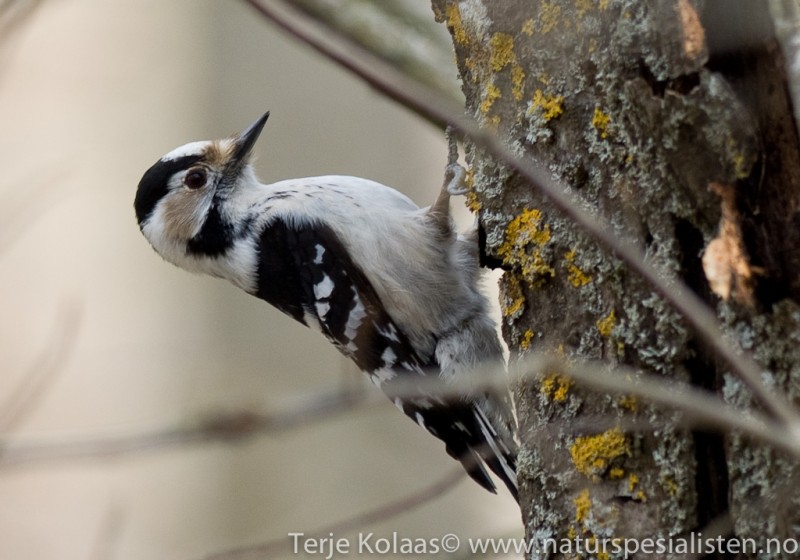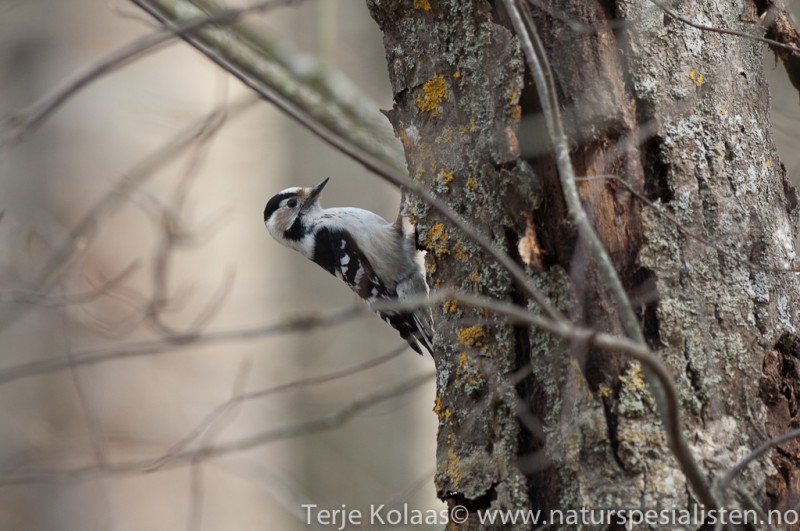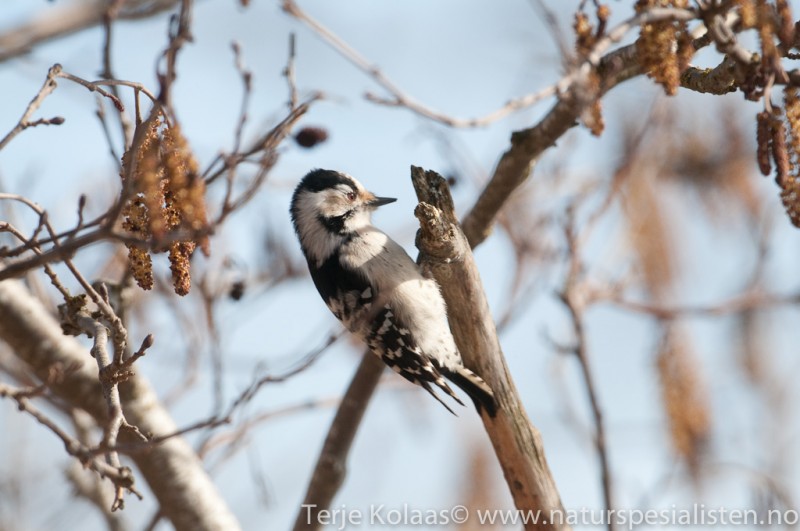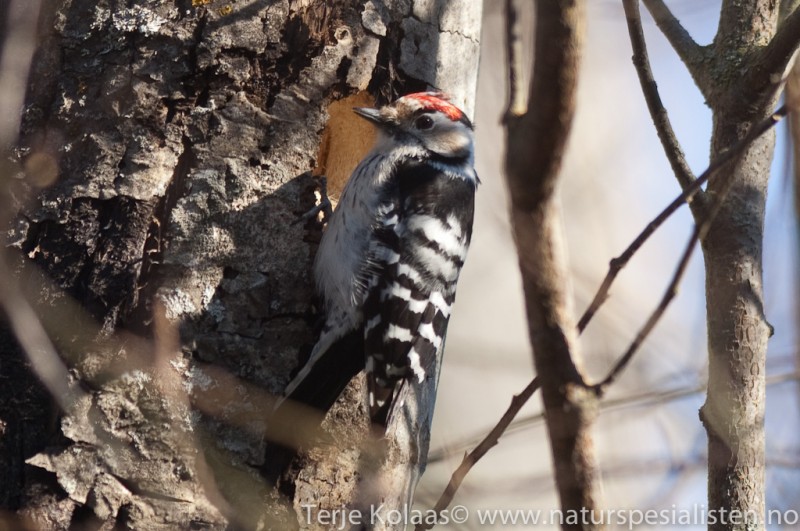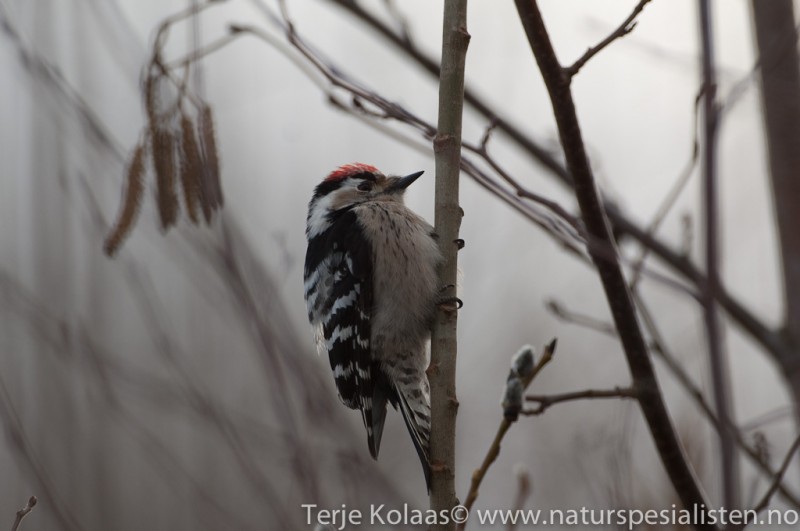Manx Shearwater (Puffinus puffinus)
Lesser Spotted Woodpecker (Dryobates minor)
Fairly small shearwater with jet black upperparts, and pure white underparts. Armpits often with dark markings. White notch behind wing base. Distinguished from Yelkouan and Balearic Shearwater by the always pure white vent. Faint, white wedge behind ear coverts. Legs do not protrude behind the tail. Flight typical of family: Rapid, shallow and stiff wing-beats, with alternating glides. Sometimes with only the primaries moving.
Sound:Vocal at breeding ground. The call is sharp and wailing, and consist of two parts. A drawn, "inhalation", is immediately followed by a trisyllabic "ka-ya-ya".
Song:
Distribution:
Wikipedia: map (se also Xeno-canto below)
Ecology:Birdlife ecology
Links:
Observation.org Latest observations
Image search Flickr NB! May give other species
CCVery small, almost sparrow-sized, woodpecker. Most likely to be confused with Great Spotted Woodpecker, but vent never red (always in Great Spotted). Back heavily barred, and underparts streaked. No large patches of white on upperparts. Male with red crown, female purely black and white. Bill small and slender. More likely to be seen foraging in branches than most other woodpeckers. Fluttering flight.
Sound:Frequently drums in quite long series. Much longer than Great Spotted, and without ritardando. Most common call a series of merlin-like "ke-ke-ke-ke-ke-ke" given at fairly stable pitch, and less hoarse than Merlin. Differs from Wryneck in lacking marked rise and fall in pitch, and being less plaintive.
Drumming, song:
Distribution:
Xeno-canto: map
Ecology:Birdlife ecology
Links:
Observation.org Latest observations
Image search Flickr NB! May give other species
CCCC-photo:Stefan Berndtsson, Licence,Link, CC-photo:Maggi_94, Licence,Link,

 English
English Albanian
Albanian
 Armenian
Armenian
 Bulgarian
Bulgarian
 Catalan
Catalan
 Croatian
Croatian
 Czech
Czech
 Danish
Danish
 Dutch
Dutch
 Finnish
Finnish
 French
French
 Georgian
Georgian
 German
German
 Greek
Greek
 Hungarian
Hungarian
 Italian
Italian
 Latvian
Latvian
 Lithuanian
Lithuanian
 Macedonian
Macedonian
 Norwegian
Norwegian
 Polish
Polish
 Portuguese
Portuguese
 Romanian
Romanian
 Russian
Russian
 Sami : Lule sami
Sami : Lule sami
 Sami : North sami
Sami : North sami
 Sami : South sami
Sami : South sami
 Scientific names
Scientific names
 Serbian
Serbian
 Spanish
Spanish
 Swedish
Swedish
 Ukrainian
Ukrainian


